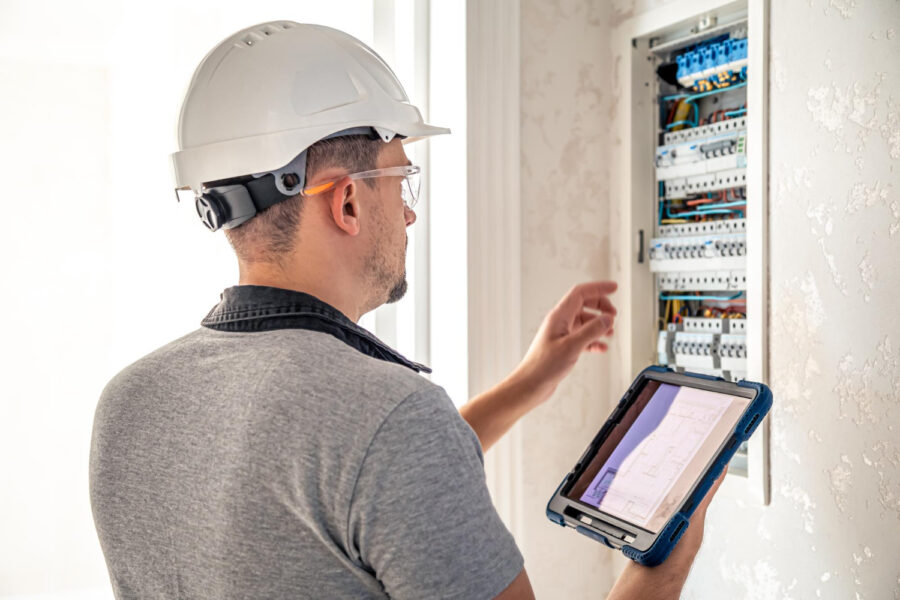Innovations in Residential Electrical Systems: Paving the Way for Sustainable Living

Key Takeaways
- Adopting energy-efficient appliances and intelligent technology is crucial for sustainable living.
- The rise of renewable energy sources in residential areas signifies a shift towards greener electricity.
- Government incentives assist homeowners in making energy-efficient upgrades more affordable.
- Upcoming trends in residential electrical systems focus on further integration of IoT and sustainable practices.
Table of Contents
- Introduction to Modern Electrical Systems
- Smart Home Automation and Electrical Systems
- The Role of Renewable Energy in Home Electricity
- Innovations in Home Wiring and Safety
- Electrical Systems and the Internet of Things (IoT)
- Sustainable Materials in Electrical System Manufacturing
- Governmental Incentives and Policies Promoting Efficient Electrical Systems
- The Shift towards Energy Efficiency
- Future Trends in Home Electrical Systems
- How Homeowners Can Get Involved with Electrical Sustainability
Introduction to Modern Electrical Systems
Each day across neighborhoods, the hum of electrical systems is a symphony of progress, echoing the transitions from flickering light bulbs to LED efficiency, from tangled wires to streamlined intelligent panels. These system upgrades represent a technological leap and a social commitment to meeting the demands for a greener future. At the nexus of this shift, the expertise of a local electrical contractor Philadelphia PA, skilled in fusing traditional electrical knowledge with the vanguard of innovation, ensures that homes stay connected and energy-efficient.
Smart Home Automation and Electrical Systems
Innovative technology is no longer the stuff of science fiction—it’s a living, breathing aspect of our current reality. Through innovative home automation systems, efficiency and control coalesce, offering homeowners unparalleled command over their environment. Lighting, temperature, and even security are now at one’s fingertips, customizable at a moment’s notice, often resulting in significant energy savings. The confluence of convenience and conservation makes smart home automation a cornerstone of contemporary residential electrical systems.
The Role of Renewable Energy in Home Electricity
Amidst the din of daily life, renewable energy sources stand as beacons of quiet revolution. No longer just a romantic dream, technologies like photovoltaic solar panels and residential wind turbines are accurate, accessible options homeowners harness to power their lives. By dovetailing these natural, inexhaustible resources into the electrical grid of residences, a sustainable, self-sufficient home becomes more than a possibility—it’s a present-day option for energy consumption.
Innovations in Home Wiring and Safety
Though often unseen, the wiring that snakes through the walls of a house is the silent custodian of safety and functionality. Recent advancements in wiring materials and electrical practices have significantly reduced the risk of fires and other hazards, protecting homes and their inhabitants. These updates, coupled with the rise of automated safety features like circuit breakers and ground fault interrupters, act as vigilant guardians, ensuring the efficacy and well-being of households.
Electrical Systems and the Internet of Things (IoT)
In an interconnected world, the Internet of Things (IoT) redefines the potential of household appliances and systems. As IoT makes inroads into residential electrical networks, these devices share data, learn from user habits, and anticipate needs before they are explicitly communicated. This interconnectedness ushers in an era of tailored energy consumption, where efficiency is only matched by its personalized convenience.
Sustainable Materials in Electrical System Manufacturing
The journey towards a greener planet is not solely charted through energy efficiency—it’s also found in the materials we use to build our technologies. Innovators in electrical manufacturing are increasingly turning to sustainable materials that offer durability without the environmental toll. Such initiatives in material science pave the way to a future where electrical system components are as kind to the earth as they are functional within our homes.
Governmental Incentives and Policies Promoting Efficient Electrical Systems
Transitioning to an efficient home electrical system is not only encouraged by environmental activists but also actively supported by governments worldwide. Tax breaks, rebates, and subsidies are among the arsenal of incentives offered to homeowners who invest in energy-saving upgrades. These measures soften the up-front cost and underscore the collective benefit of sustainable living, drawing more citizens into environmental stewardship.
The Shift towards Energy Efficiency
The home is often a haven of comfort and a platform for change. The drive towards energy efficiency is not just an economic debate—it’s a cultural renaissance. As high-performance appliances increasingly become the norm, households stand to gain more than reduced utility bills. These modern marvels offer a harmonized lifestyle that aligns with energy conservation principles and amplifies the sustainability ethos. To delve deeper into the compelling advantages of such upgrades, resources like the U.S. Department of Energy prove invaluable, highlighting the transformative power of energy-efficient home appliances.
Future Trends in Home Electrical Systems
The forecast is evident as we look toward the horizon of electrical system evolution: more innovative, more efficient homes with a minimal environmental footprint. The burgeoning relationship between residential electrical systems and technologies such as artificial intelligence (AI) and machine learning points to a world where home energy management is predictive, adaptive, and intuitively aligned with our consumption patterns. For a comprehensive look at what lies ahead, one can explore articles like those from Nature Energy, illuminating the emerging trends to define the next generation of residential electricity management.
How Homeowners Can Get Involved with Electrical Sustainability
Gone are the days when sustainability was a fringe concept—today, it is a practical, attainable goal within reach of every homeowner. Taking the initial step towards a sustainable electrical system requires knowledge about available options and understanding which innovations align most closely with one’s values and lifestyle. By engaging skilled electrical specialists, staying abreast of governmental incentive programs, and seeking energy-efficient technologies, homeowners can play an active role in shaping a more sustainable future—one home at a time.